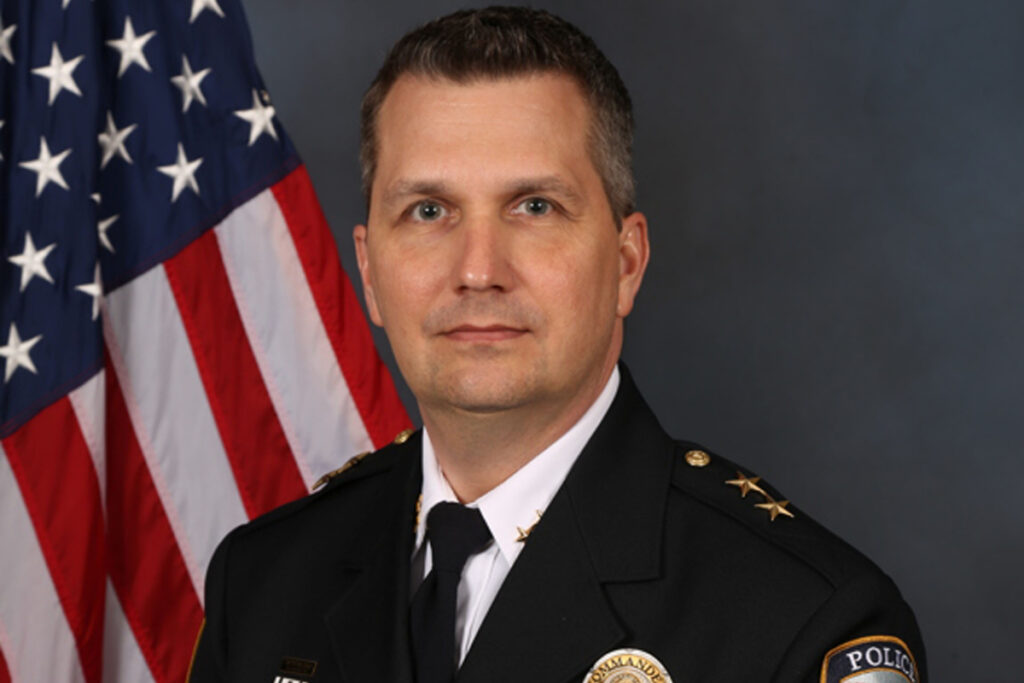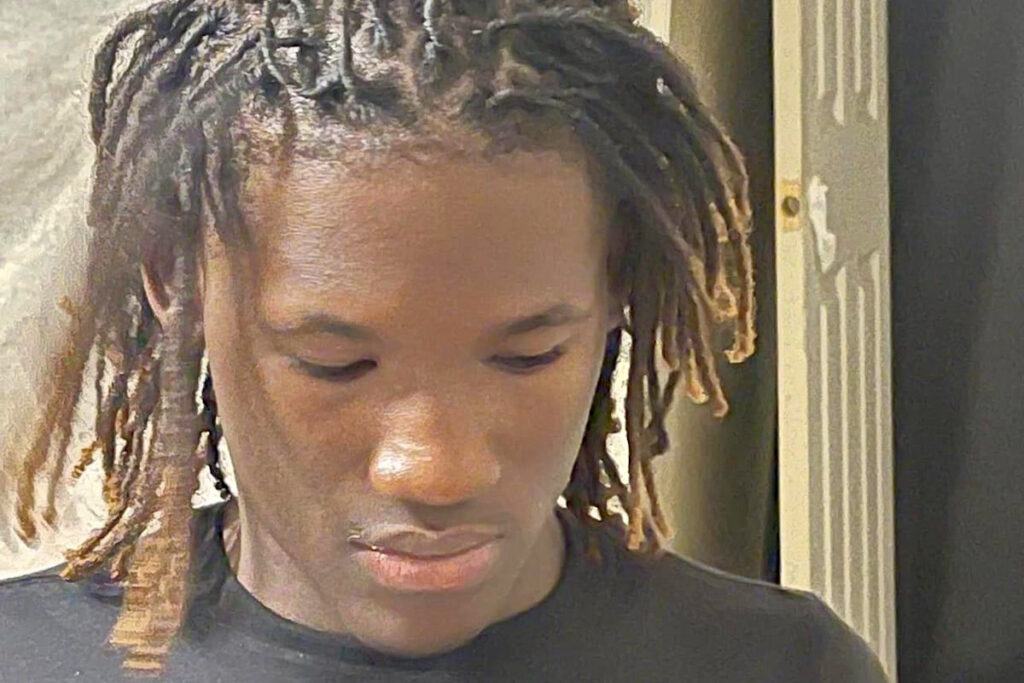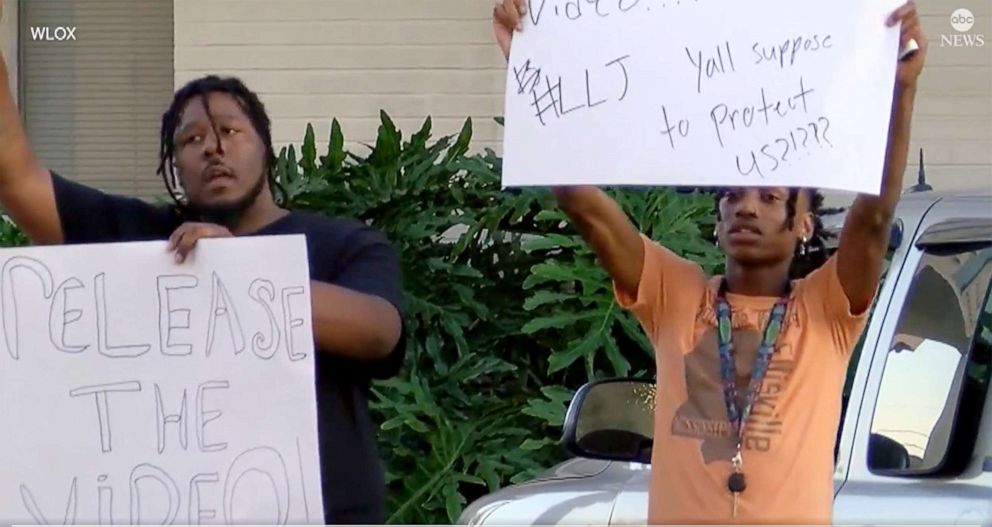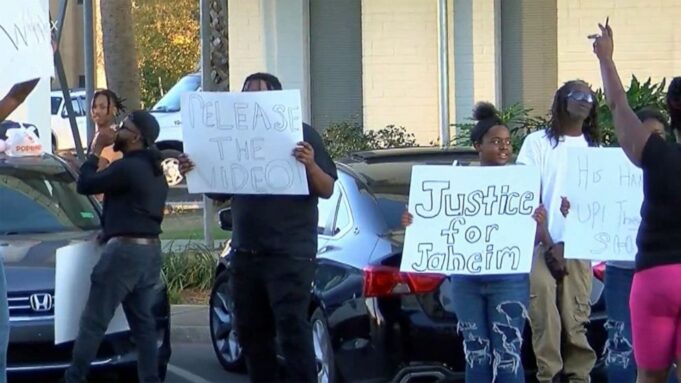Within an atmosphere of what residents called callous and indifferent policing, the recent killing of Jaheim McMillan, 15, by a Gulfport, Mississippi, police officer, is leading to more questions than answers after the high school freshman was removed from life support, two days after being shot in the head on October 6.
Local business owner and community activist, Stanley Moore, told The Final Call that on the afternoon of the shooting, he had just come home to eat when his son called to tell that someone had just been shot at the store where he regularly shops and that it’s near his personal residence. “He said, ‘the dollar store, somebody’s laying in front of the door now!’” Mr. Moore said of his son’s harried explanation over the phone.
“I immediately dropped everything and just shot out the house because that’s my store. I (shop) there almost every day and every weekend. When I got there, I parked across the street and I saw (Jaheim’s) mother in handcuffs, and when I got there, I saw the baby laying down in handcuffs, they were putting the tape up, it was a chaotic scene,” he said.

Describing how enraged witnesses, both Black and White, insisted that the boy’s hands were raised and that he was unarmed when the officer gunned him down, Mr. Moore alleged that additional witnesses claimed the deadly encounter was the result of a White man accusing Black teens of waving guns from a car after he initially cut them off in traffic.
“There’s two sides to every story, and these young boys now are saying their side of the story,” Mr. Moore said. He believes it was a case of road rage by an angry White motorist, which led to an aggressive police response following a 911 call. “That’s what we’re dealing with. We’re down here in the Deep South, and these White folks down here, they have an attitude and will do things to provoke you. From my understanding, and what my people have shared with me, is the boy did not have a weapon,” he said of the shooting that eventually led to Jaheim’s death in a Mobile, Alabama hospital.
According to the Mississippi Clarion Ledger, a press release by the Gulfport Police Department said the shooting occurred after their response to a 911 call about minors waving guns at cars and that officers pulled them over in a Family Dollar parking lot.
“Gulfport Police Chief Adam Cooper said an officer engaged an armed suspect, since identified as McMillan, resulting in shots being fired,” the newspaper article stated. It also said that the young man’s family doesn’t believe the 15 year old was holding a weapon at the time of the shooting and that they and others are calling for the release of video footage.
Witness accounts differ from police and local media
Gulfport resident Robert Earl Williams Jr., 52, told The Final Call that he witnessed the shooting of Jaheim McMillan in front of the Family Dollar store and that he saw nothing in the teenager’s hands, nor did he and others see a gun on the ground after the shooting.

“When they showed it, there was a gun there,” Mr. Williams said of a local news broadcast as opposed to what he said he and others witnessed during and immediately after the shooting. “I don’t see it, and nobody sees it,” he said of the reported gun. He pointed out the contradictions between what he said he and others witnessed in real-time and what police and news media said to the public after the fact. “I didn’t see no gun nowhere,” Mr. Williams insisted.
Marquell Bridges, a community activist dedicated to bringing awareness to issues of injustice throughout the state of Mississippi, told The Final Call that the shooting of Jaheim took place close to the teenager’s home. He said these types of incidents happen far too often, and that deadly police encounters are rarely called into question, particularly when they involve Black people.
“Our communities are over-policed, they roadblock, they harass, they pretty much do whatever they want to the Black community, and the majority of Black people down here are living in fear,” Mr. Bridges said. “When they do speak out, they are intimidated and harassed (and) it’s been an ongoing issue because of the lack of attention,” Mr. Bridges said. He described multiple instances of Black men, women and children being killed by police, and even vigilantes, throughout Mississippi with little, if any, accountability to local or state government. “The witnesses say no gun, police say gun,” he explained.
Dr. Gregory Barabino, the NAACP president from neighboring Hancock County, told The Final Call that he became aware of the shooting after receiving phone calls from residents in Harrison County, where Gulfport is located, a few hours after the incident.
“From the people contacting me, the children stopped at the Family Dollar store, two cop cars pulled up, trying to find the suspects, but they didn’t get pulled over, from what I understand, and the four kids decided to run,” Dr. Barabino said of what he understood of the incident, as told to him. He explained how multiple witness accounts and the police accounts of what happened are drastically different and confusing.
“The story on the scene was that the cops killed him, the guy didn’t have a gun, and then one story says he had a gun in his waistband, they don’t know if any of that is true. So, the big dilemma is there is no police footage, no bodycam or Dollar Store camera footage,” Dr. Barabino said. As of presstime, video of the deadly encounter has not been released.

Civil Rights attorney Benjamin Crump released a press statement that his office had been retained to represent the McMillan family.
“This child had his whole life ahead of him, but bullets from those officers took all possibility of that away in an instant. While much remains unknown about this case, we fully intend to put pressure on officials in Mississippi until his family gets the answers they need and deserve,” Atty. Crump stated. “We are calling for officials to release any and all video footage of the incident so that we can see with our own eyes what transpired on that tragic night.”
Attracting protesters and activists from across the region, many individuals and organizations continue to express their anger and dissatisfaction. Observers argue that blatant human rights violations are happening in Mississippi while America condemns these same behaviors in foreign countries.
According to a local Fox News affiliate, dozens of people gathered in downtown Gulfport in October calling for more transparency into the shooting. Roughly 75 people met across the street from the Gulfport Police Department with several people holding signs with a variety of messages calling for “Justice for Jaheim,” reported fox10tv.com. Along with Jaheim’s family, members of Black Lives Matter Mississippi and the Mississippi Rising Coalition also made an appearance, the outlet reported. Additional protests are scheduled, according to the Jaheim Justice Facebook Page.
“We were on the ground (that) Saturday, not only for the demonstration but to do an investigative report as we always do on our own,” said Krystal Muhammad, national chair of the New Black Panther Party for Self-Defense. She told The Final Call how 19th-century slave patrols are linked to the modern concept and origin of American policing, and that many departments have yet to confront their cultures of White supremacy and racist oppression against Black people.
“We believe that this was a premeditated incident because his mother had previously stated that Jaheim was beaten by the Gulfport police in July of this year, and they approached the mother a few months ago and told her that they were going to get her son,” Ms. Muhammad said. “Would they go into a White neighborhood while people are in the store and shoot in toward the store? His body was at the front door!” she stated.
Gulfport is the second-largest city in Mississippi after the state capital, Jackson, and has a population of close to 72,000 people. Blacks make up approximately 38.1 percent of the population. According to the website of the Gulfport Mississippi Police Department, it consists of 167 sworn personnel and 57 civilian staff. According to policescorecard.org, Black police officers make up 10 percent of the department.
Warning and guidance
In a lecture titled “Justifiable Homicide: Black Youth in Peril,” delivered at Mosque Maryam in Chicago on October 28, 2007, the Honorable Minister Louis Farrakhan of the Nation of Islam warned those who would listen, that Black youth have been targeted for destruction from the highest levels of society and government.
“Brothers and sisters, you may not be aware of the tremendous danger and peril that we as a people are in,” Minister Farrakhan warned. “Some have decided that the problem of us is so great, and they’ve tried everything they know except the divine solution which God has given to the Honorable Elijah Muhammad. Their solution is ‘let’s erase the problem’ so we won’t have to deal with it anymore,” the Minister explained.
Minister Farrakhan pointed out the many methods the government on various levels would employ to carry out this targeted plan. Minister Farrakhan pointed out it includes: through the poor condition of our health and diseases; gang warfare and drugs in our community. During that critical message, the Minister stated the Nation of Islam’s appeal is for Black youth to stop the violence which is promoted by “beefs” and often exacerbated and promoted by outside interests. This violence only fills jails, prisons, and funeral parlors, the Minister warned.













